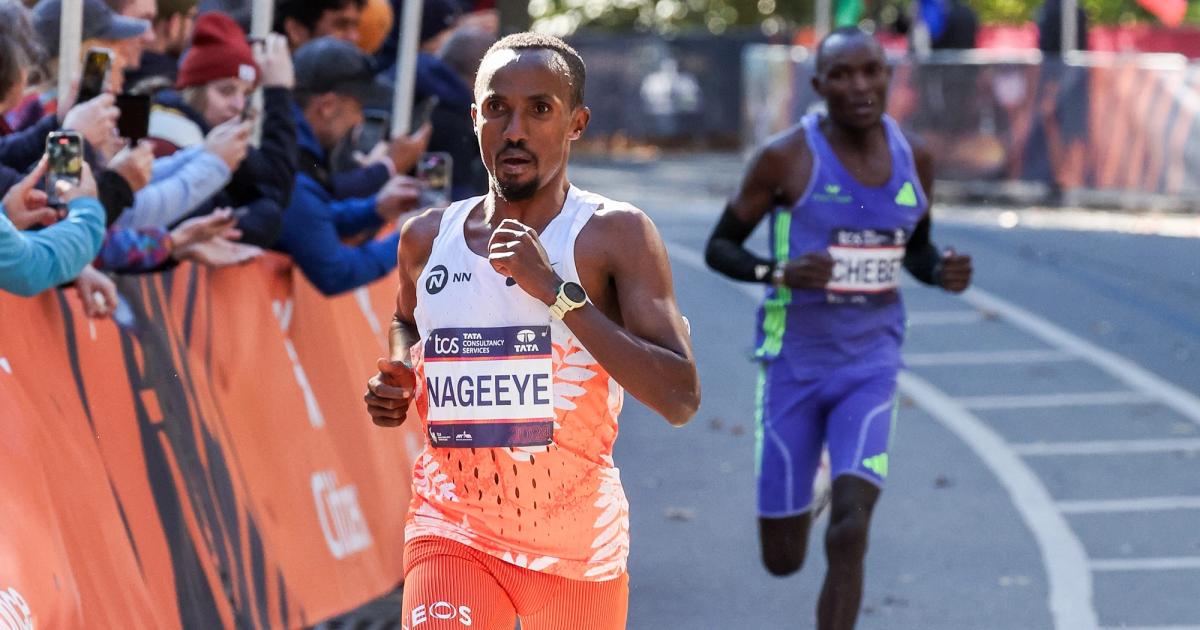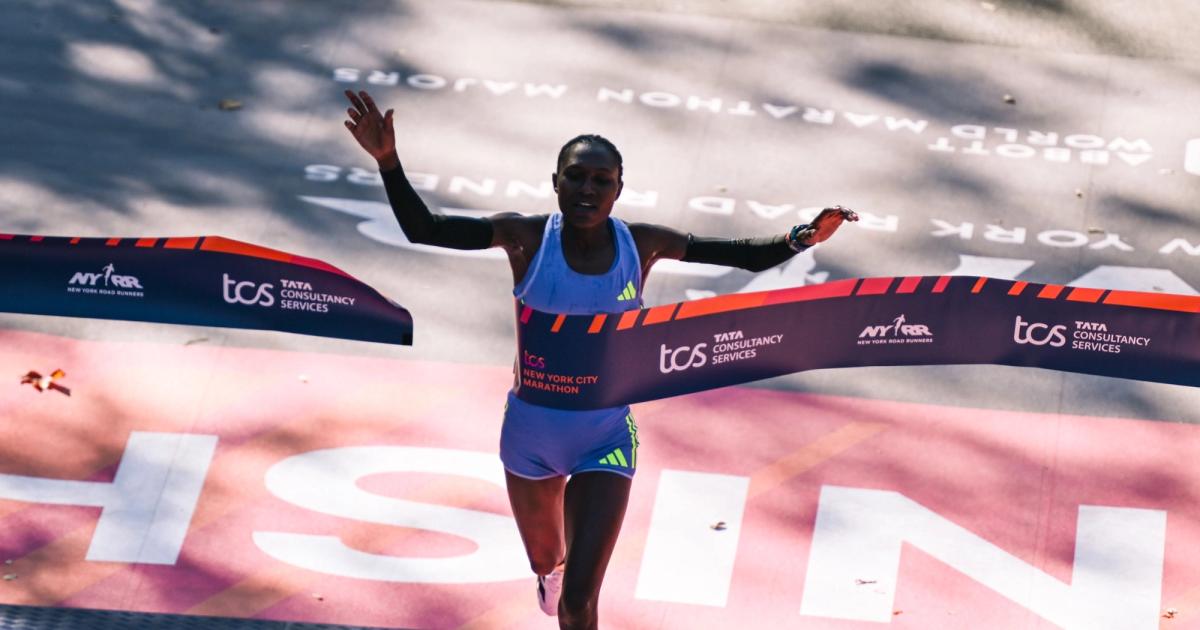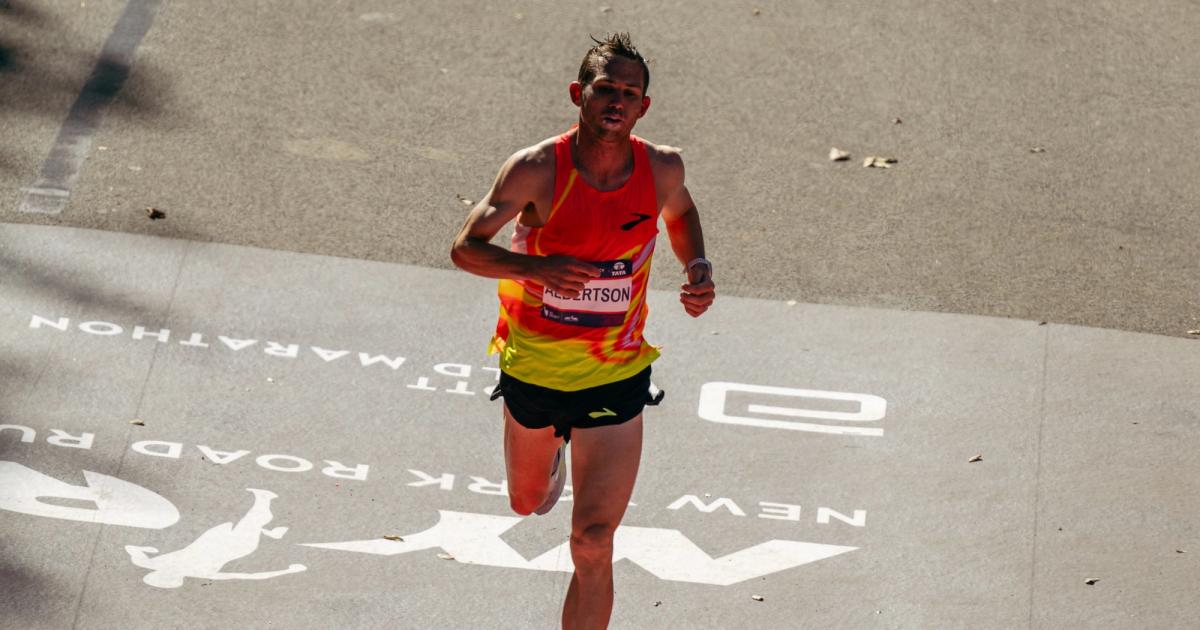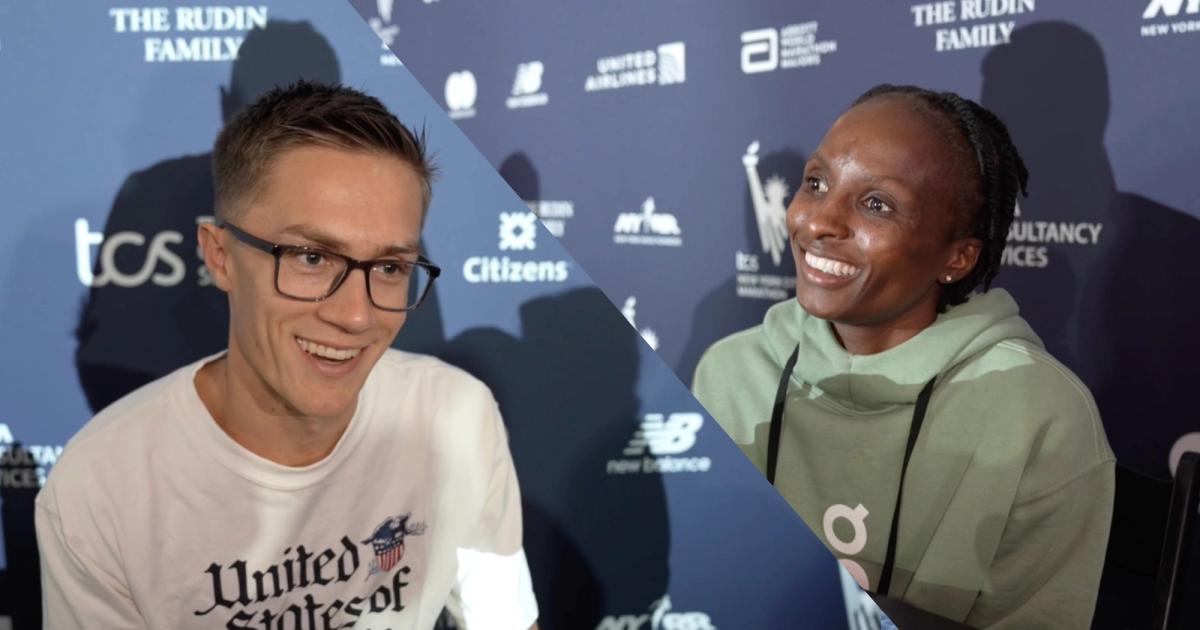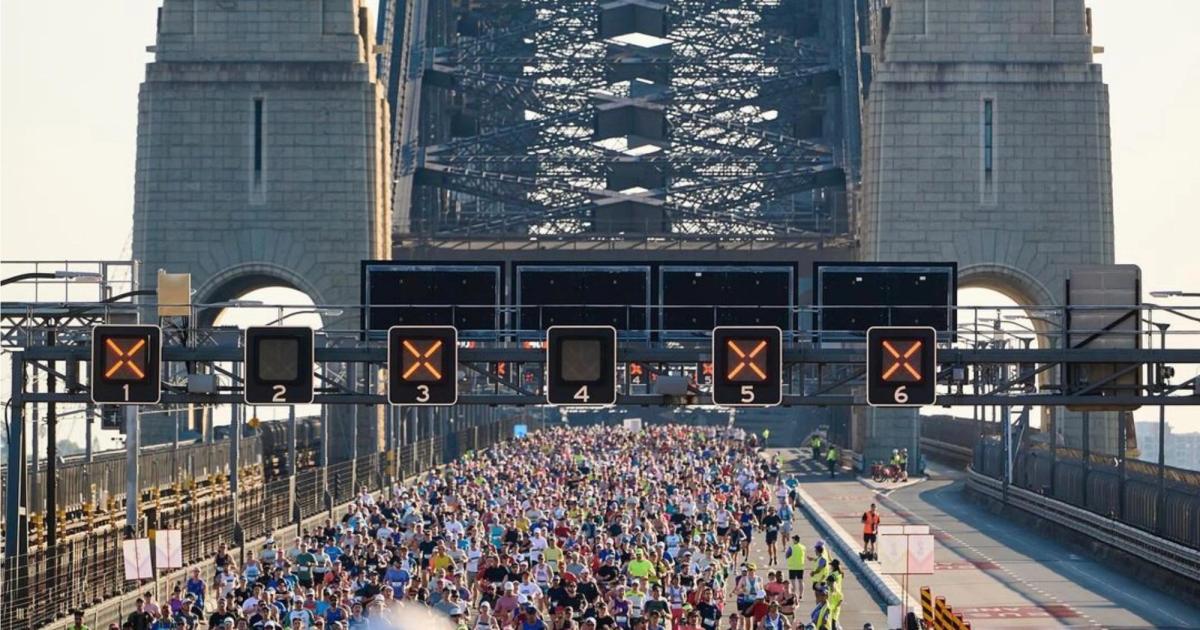By David Melly
November 6, 2024
To paraphrase a famous New Yorker, this race had everything.
Olympic medalists. Track and field legends. Early surges and late kicks. Unpredictable, but still wildly satisfying endings. And interesting narratives throughout the men’s and women’s elite field, from New York newcomer Jess McClain to the ageless Edna Kiplagat and everyone in between.
On the men’s side, Dutchman Abdi Nageeye bounced back from Olympic disappointment to claim his first World Marathon Major title after more than a decade of trying. The women’s saw the return of a legend and the dethroning of a champion as Sheila Chepkirui picked up her first WMM title by beating reigning champ Hellen Obiri and all-time track great Vivian Cheruiyot. And up and down the elite results, it seemed like every result told an interesting story about where we are in the event after a banner year on the roads.
Experience on tough courses pays off. Here’s a fun stat from this year’s New York Marathon: the only man among the top five finishers who hadn’t already won the race in years prior was this year’s champion. Evans Chebet (2022 champ) finished second, followed by Albert Korir (2021 champ), Tamirat Tola (2023 champ), and a resurgent Geoffrey Kamworor (2017 and 2019 champ). Clearly, having run New York well in the past is a pretty good predictor of future success. The women’s podium wasn’t quite as unambiguously tilted toward experience, but Obiri has now finished sixth, first, and third in three attempts and Cheruiyot, who’s got experience to spare as a 41-year-old, seven-time global champion, finished second back in 2018. But perhaps the best example came back in 11th place, where 41-year-old Des Linden continues to bat above her average in tough marathon races in her fifth New York appearance.
But also… so does talent. Sure, having logged a few dozen miles through the five boroughs can be a leg up. But when those legs are genetically predisposed to distance-running excellence, you’ve got a pretty good shot of nailing it on the first try. And that’s just what Sheila Chepkirui did, proving that just because you’ve run well on flat, fast courses doesn’t mean you can’t also run well over hills. Before her win in New York, Chepkirui had run four marathons and her SLOWEST time was 2:19:31. So it can’t be that surprising to see her handing Hellen Obiri a rare L, even if she’d never ventured through the Central Park hills before. Similarly, neither Conner Mantz nor Clayton Young had tackled the Verrazzano Bridge prior to Sunday, but the Utah-based duo clearly have a magic combination of talent, coaching guidance, and indefatigable self-belief that is keeping them atop the American marathoning heap these days.
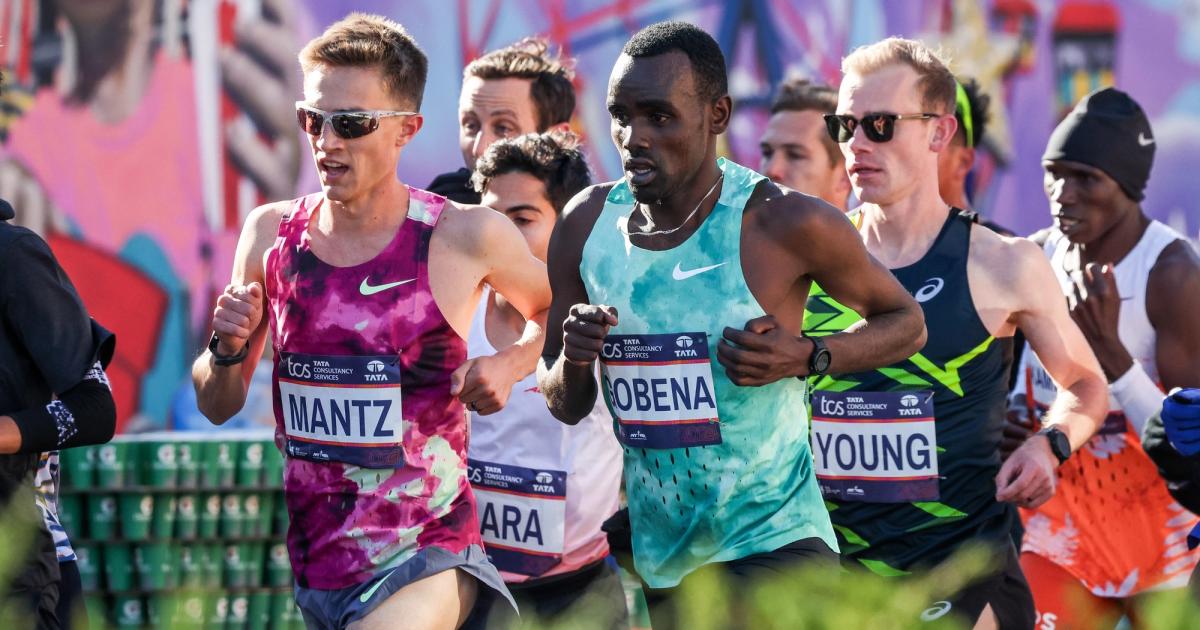
Conner Mantz, Clayton Young and more of the top men’s field. (Photo by Kevin Morris / @kevmofoto)
CJ Albertson is one of a kind. Many Olympians this year squeezed a third marathon into the traditional spring/fall race schedule, but CJ Albertson, who didn’t even make the Olympics, raced four high-level marathons in 2024: the Trials (Feb. 3, 5th: 2:10:07), Boston (Apr. 15, 7th: 2:09:53), Chicago (Oct. 13, 7th: 2:08:17), and NYC (Nov. 3, 10th: 2:10:57). While missing the team was surely a big disappointment, Albertson still put together one of the best seasons by an American in recent history, finishing top 10 in three marathon majors, clocking a lifetime best, and moving to No. 9 on the U.S. all-time list. Albertson is no stranger to hard efforts close together after his two 2:11s one week apart last December, but his Chicago/NYC double was particularly impressive given the level of competition. In 2021, when Kenenisa Bekele ran Berlin and NYC, he finished higher (3rd and 6th), but Albertson averaged a faster time across his two fall marathons (2:09:37 vs. 2:09:49) with two weeks less turnaround time.
Conservative racing up front is great for Americans. Both the men’s and women’s elite fields played it relatively safe over the first half of the race, with few real attacks before mile 16 and no truly fast miles. As a result, 21 women and 15 men were within six seconds of the lead at half way, including a whole bunch of Americans who, frankly, would not have been able to hang on if any of the 2:03/2:17 runners had set out on PR pace. While the eventual podium runners did separate out over the second half, the favorable weather and conservative early pace set up the top Americans for success. All six Americans who ended up in the top ten ran small negative splits, and veteran racers like Kellyn Taylor (74:00-73:59) get bonus points for achieving a nearly perfect pace job, even as she navigated NYC’s hills and turns.
The new World Championship standards are pretty dang hard. In order to qualify for the 2025 World Championships in the marathon, participants must do one of three things: 1) hit the auto marks of 2:06:30/2:23:30, 2) finish top 5 in a World Marathon Major, or 3) get selected by world ranking. We won’t know how rankings shake out for Tokyo until much, much later, so anyone hoping to lock in their September 2025 travel will have to pursue one of the first two options. Both Conner Mantz and Sara Vaughn were close, finishing sixth place only 11 and 26 seconds, respectively, out of fifth. But after all was said and done, there are still zero American men and only four American women with the standard today.
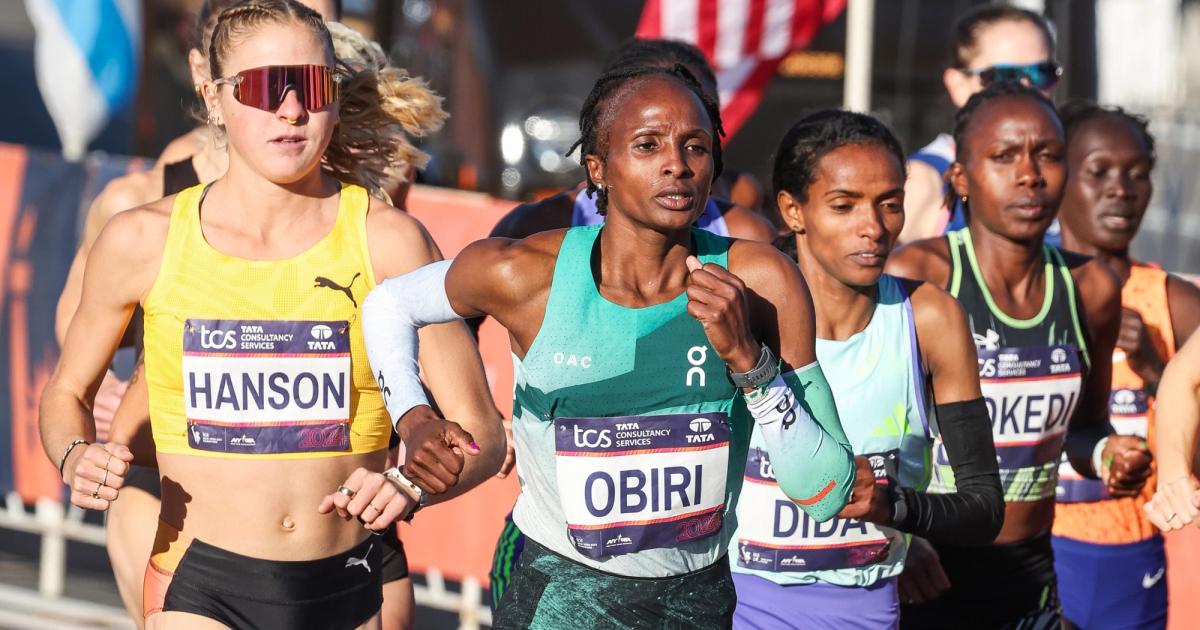
Hellen Obiri and more of the top women’s field. (Photo by Kevin Morris / @kevmofoto)
There’s no clear best marathoner in the world right now. As we mentioned last week, Tamirat Tola and Hellen Obiri had the opportunity to solidify their spots as the top marathoners in the world by defending their titles in New York, and while they ran well… getting beat (Obiri finished second and Tola finished fourth) does not help their cases. On the women’s side, with no double victors in the WMM series, Ruth Chepngetich and her 2:09:56 is probably the world No. 1, but in her 9th-place London performance only six months ago, she lost to the eventual Berlin champ (Tigist Ketema), the NYC champ (Chepkirui), and the Olympic silver medalist (Tigst Assefa).
Throw in Obiri, Olympic champ Sifan Hassan, and London champ Peres Jepchirchir, and good luck picking a true favorite in any of those head-to-head matchups. On the men’s side, Abdi Nageeye has the blemish of an Olympic DNF on his resume, but he did win Rotterdam – not a major, but a big, competitive marathon nevertheless – in 2:04:45 earlier this spring. Tola is certainly in the conversation, but he’s also got a DNF this year (in London) and hasn’t run super, super fast. Next year’s World Marathon Majors will continue to be must-watch TV simply because there’s no foregone conclusions in the event right now.
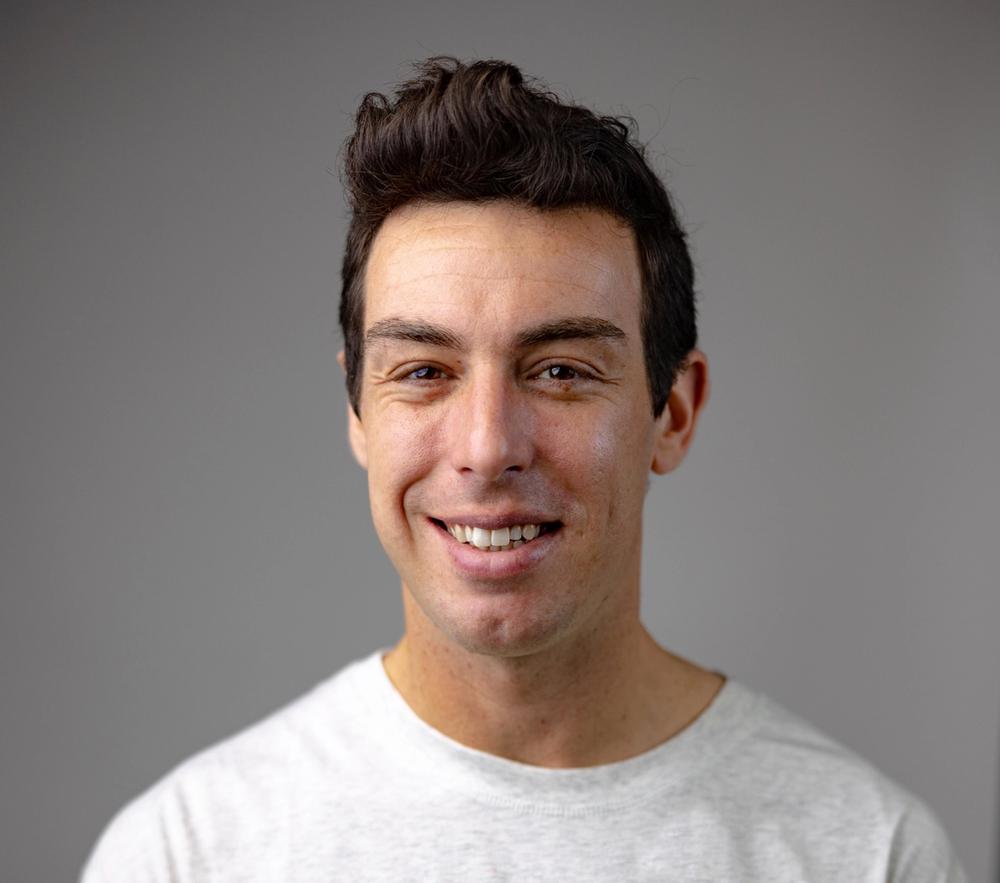
David Melly
David began contributing to CITIUS in 2018, and quickly cemented himself as an integral part of the team thanks to his quick wit, hot takes, undying love for the sport and willingness to get yelled at online.
